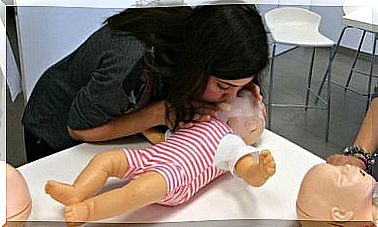Discipline: How To Teach Your Kids It

As parents, we should be aware that there are ways to teach children discipline. Of course, not all children are alike, and we may not be able to apply all the recommendations we hear. But all advice on discipline can be useful, worth reflecting on and they are open to interpretation.
Everyone knows that childhood is a complicated phase in which each individual develops both physically and mentally. Childhood also forges personality, good habits and behaviors.
As parents, we face the challenge of promoting the optimal development of our children. We need to balance our relationships with them and educate a respectable, fair and well-behaved person.
Teaching our children discipline is the main tool we have to direct their actions in the family, at school and in the public eye. But it can be a rather difficult task.
7 ways to learn discipline
If we want to teach our children discipline, we can start by taking wise recommendations from specialists into consideration. It is also important to take advice from our closest friends for consideration.
Let us reflect on these helpful tips to begin this arduous task:
1. Be fair
Respect is one of the most important lessons that children can learn. Respect and equality are both essential values we should teach our children. When we treat our children on an equal footing, we encourage them to want to contribute more.
It is not recommended that a child demonstrate obedience and submissiveness instead of respect. By not being too authoritarian, we let them know that it’s okay to surrender in between.
2. Be careful
We can avoid many things with caution; for example: to incur excessive punishment. It is important to explain to the child the reason why he or she has been disciplined so that our actions do not confuse them.
Give them freedom
Part of the family relationship is to let each individual in the group have the same rights and be participants in family activities with total freedom.
For that to happen, it is essential to give children the opportunity to express their opinion to their parents. This builds trust in the group and allows them to understand that they are being heard.
4. Make room
The foundation of discipline is individual freedom. When children realize that they have room to choose their actions, then they have an easier time accepting rules and authorities.
It is important to let children act out of their own free will and be able to negotiate and communicate with their parents. This is important when establishing rules and boundaries.
5. Set rules
If the family rules are clear and familiar, then they should not be a cause for confusion or disagreement.
The first step to teaching children discipline is to be specific when setting rules in the home.
6. Avoid unannounced rewards
When a child needs to learn a habit or behavior, it is essential that they are excited about being rewarded from the start.
For example, if we want them to perform a task and we intend to give them a reward for it, then it is important that the child knows this in advance.
If the child performs the task, then they have learned discipline in two ways: because they obeyed, and because they accomplished their personal goals. That is, they satisfied both themselves and their parents.

7. Listen to your children
It is important to listen when teaching your children discipline. It is associated with other important points such as respect, equality, freedom and being able to follow rules.
It never hurts to listen to what our children will tell us. It allows us to find out how they think. This allows us to better respond to their behavior.
Listening is also a useful tool to make them see that they can trust us and that they have the ability to defend themselves.









